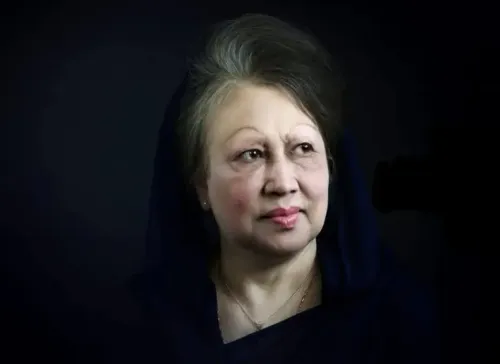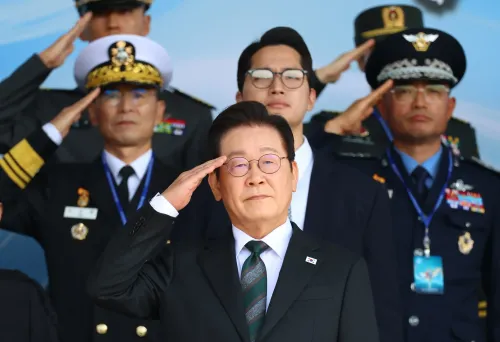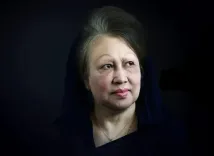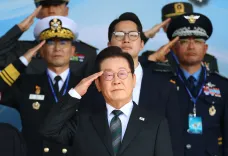Ukraine Launches Another Strike on Major Oil Refinery in Russia
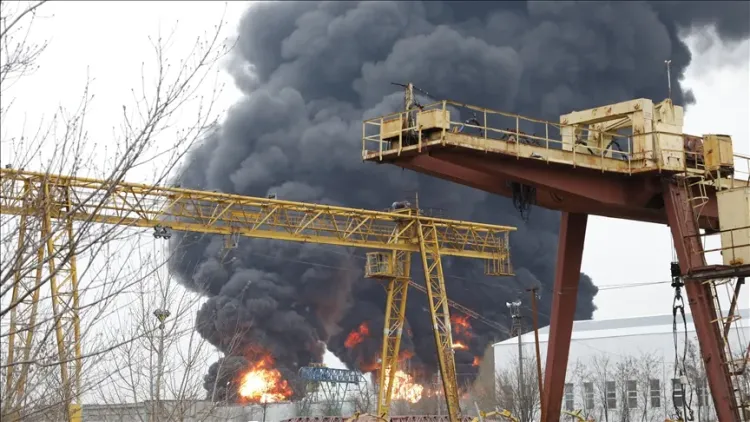
Synopsis
Key Takeaways
- Ukrainian forces targeted Ryazan Oil Refinery again.
- This marks the second attack in less than a week.
- Ryazan is one of Russia's four largest oil refineries.
- The facility supplies fuel to the Russian military.
- The Russo-Ukrainian War has been ongoing since 2014.
Kyiv, Jan 26 (NationPress) Ukrainian forces have targeted facilities of the Ryazan Oil Refining Company located in western Russia for the second occasion within a week, as reported by the General Staff of the Armed Forces of Ukraine in a statement on Sunday.
Following the assault, explosions and fires were noted in the affected area, according to reports from the Xinhua news agency.
As stated, the Ryazan Oil Refinery stands as one of the four largest refineries in the Russian Federation. This facility notably produces diesel fuel and TS-1 jet fuel.
The refinery has played a role in supplying fuel to the Russian military, the statement indicated.
The General Staff also reported that Ukrainian missile forces targeted the forward command post of the Russian Pacific Fleet's operational group near the Korenevo settlement in Russia's western Kursk region, but further details regarding this attack were not disclosed.
On Friday, Ukrainian drone strikes ignited fires at production facilities and the oil pumping station at Ryazan.
The Russo-Ukrainian War commenced in February 2014, following Ukraine's Revolution of Dignity. Russia subsequently occupied and annexed Crimea and has supported pro-Russian separatists engaged in the Donbas War. Over eight years of conflict have included naval incidents and cyberwarfare. In February 2022, Russia initiated a full-scale invasion of Ukraine, leading to increased territorial occupation and the largest conflict in Europe since World War II. This ongoing war has triggered a refugee crisis and resulted in tens of thousands of fatalities.
In early 2014, the Euromaidan protests resulted in the ousting of Ukraine's pro-Russian president Viktor Yanukovych. Shortly thereafter, unrest fomented in eastern and southern Ukraine, with unmarked Russian troops seizing control of Crimea. Following a controversial referendum, Russia annexed Crimea.
By April 2014, Russian-backed militants captured towns in Ukraine's eastern Donbas region and declared the Donetsk People's Republic (DPR) and the Luhansk People's Republic (LPR) as independent entities, igniting the Donbas war. Russia covertly supplied separatists with troops, tanks, and artillery, hindering Ukraine's reclamation of the territory.
Attempts to secure peace saw the signing of the Minsk II agreements in February 2015, though these were never fully enacted in subsequent years. The Donbas conflict evolved into a violent yet stagnant struggle between Ukrainian forces and Russian-backed separatists, characterized by intermittent ceasefires but no enduring peace or significant territorial changes.


